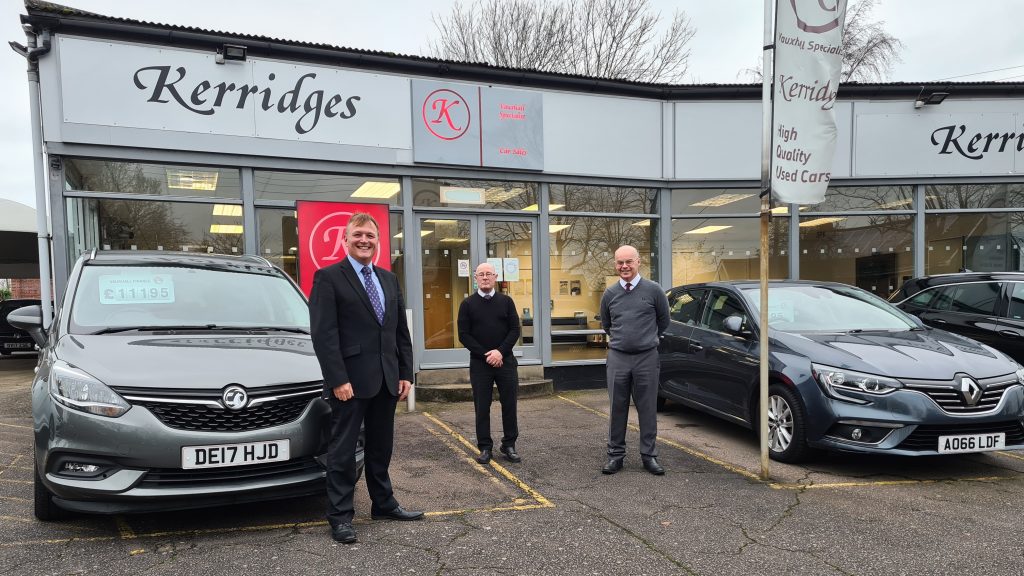The former head of Land Rover and Jaguar Land Rover’s specialist SVO division, John Edwards, and former head of Nissan GB’s sales division, Tony Lewis, have launched a new all-electric scooter brand in the UK. Edwards, who ran Land Rover from 2010 to 2013, before setting up its SVO division and running it until 2018,… Continue reading Former Land Rover and Nissan bosses launch electric scooter brand in UK
Tag: Renault
@Renault: LADA: results of commercial activity in 2020000153
In 2020, 343,512 LADA cars were sold in Russia. The Brand’s share in the passenger car and light commercial vehicle market increased from 20.6% to 21.5%, setting an absolute record for the last 9 years. Thanks to the state measures to stimulate the demand on the automotive market, successful implementation of advanced public procurement programs,… Continue reading @Renault: LADA: results of commercial activity in 2020000153
Honda to close Swindon plant next week due to semiconductor shortage
Global chip supply disruption has affected operations of carmakers Volkswagen, Nissan and GM Go to Source
Top Renault dealer acquires Vauxhall specialist
Lowestoft-based Mitchells, Groupe Renault UK’s 2019 top-performing dealership, has acquired Kerridges at Halesworth, a third-generation family-run Vauxhall specialist and used car garage. Matthew Huke-Jenner, Mitchells managing director and owner, said he was in talks with some carmakers about taking on a franchise and a decision would be made in early 2021. “We will be continuing… Continue reading Top Renault dealer acquires Vauxhall specialist
Toyota shut Chinese line for 2 days due to global chip shortage
NAGOYA, Japan/GUANGZHOU — Toyota Motor reopened a production line at a Chinese assembly plant Tuesday evening after a two-day shutdown, as the site became the company’s second facility affected by a chip shortage slamming automakers worldwide. The Japanese carmaker had halted operations on its third line at GAC Toyota Motor, the joint venture with China’s… Continue reading Toyota shut Chinese line for 2 days due to global chip shortage
GROUPE RENAULT: PRESS RELEASE – WORLDWIDE SALES 2020
PRESS RELEASE WORLDWIDE SALES RESULTS 20201Groupe Renault achieves its CAFE2 objectives, the Renault brand is the electrical leader in EuropeIn a context of the Covid-19 pandemic, the 2020 Groupe Renault worldwide sales totalled 2,949,849 vehicles, down 21.3% in a global automobile market that declined by 14.2%.Groupe Renault confirms that it has achieved its CAFE (passenger… Continue reading GROUPE RENAULT: PRESS RELEASE – WORLDWIDE SALES 2020
The World’s Top Maker of Mini Motors Bets It Can Win Over Tesla
(Bloomberg) — Nidec Corp., the world’s top supplier of motors for everything from hard drives to power plants, is betting it can make a key component for Tesla Inc.’s electric vehicles cheaper and better than anyone else, possibly including its chief executive officer, Elon Musk. “I very much want to have a top-level discussion with… Continue reading The World’s Top Maker of Mini Motors Bets It Can Win Over Tesla
@Renault: GROUPE RENAULT: PRESS RELEASE – WORLDWIDE SALES 2020000152
PRESS RELEASE WORLDWIDE SALES RESULTS 20201Groupe Renault achieves its CAFE2 objectives, the Renault brand is the electrical leader in EuropeIn a context of the Covid-19 pandemic, the 2020 Groupe Renault worldwide sales totalled 2,949,849 vehicles, down 21.3% in a global automobile market that declined by 14.2%.Groupe Renault confirms that it has achieved its CAFE (passenger… Continue reading @Renault: GROUPE RENAULT: PRESS RELEASE – WORLDWIDE SALES 2020000152
@Renault: GROUPE RENAULT: COMMUNIQUE DE PRESSE – VENTES MONDIALES 2020000151
COMMUNIQUÉ DE PRESSE RÉSULTATS COMMERCIAUX MONDE 20201Le Groupe Renault atteint ses objectifs CAFE2, la marque Renault est leader électrique en EuropeDans un contexte de pandémie mondiale de la Covid-19, les ventes mondiales du Groupe Renault en 2020 s’élèvent à 2 949 849 véhicules, en baisse de21,3 % sur un marché automobile en recul de 14,2 %.Le… Continue reading @Renault: GROUPE RENAULT: COMMUNIQUE DE PRESSE – VENTES MONDIALES 2020000151
@Mitsubishi: Mitsubishi Motors Is Redefining In-Vehicle Garage Control With myQ Connected Garage
The technology will debut on the 2022 Mitsubishi Eclipse Cross, the brand’s sporty design and technology-forward compact SUV. A new 8-inch smartphone-link display audio (SDA) system comes standard on the Eclipse Cross, giving the driver better access to and control of features available through the My Mitsubishi Connect app, including myQ Connected Garage. The technology… Continue reading @Mitsubishi: Mitsubishi Motors Is Redefining In-Vehicle Garage Control With myQ Connected Garage
